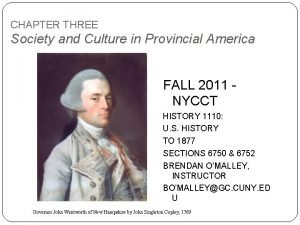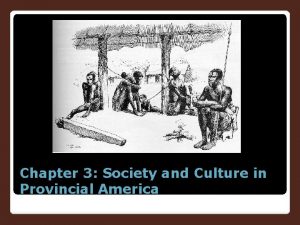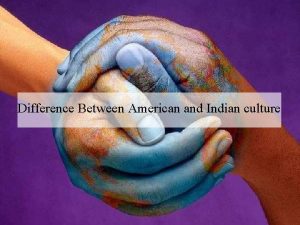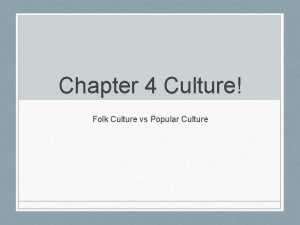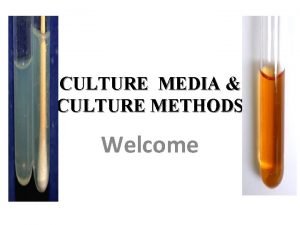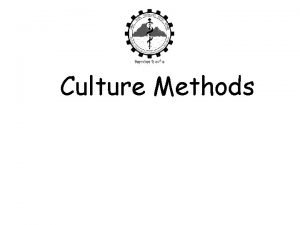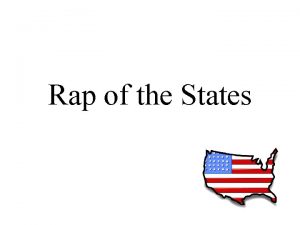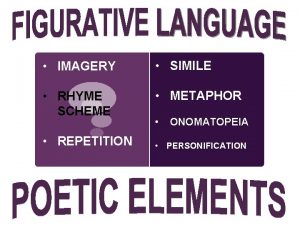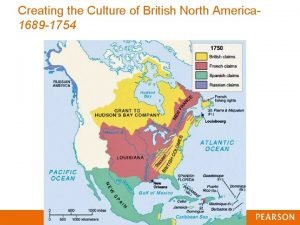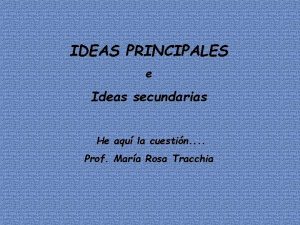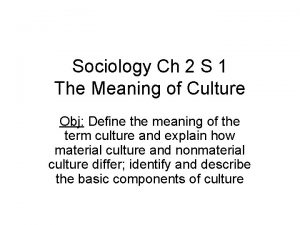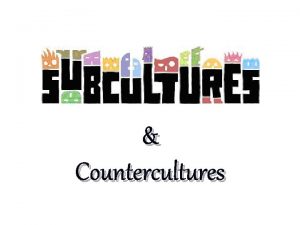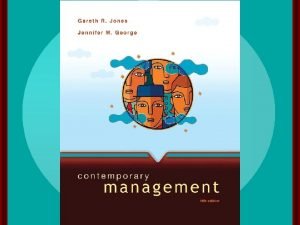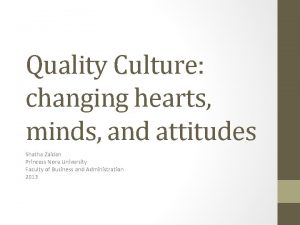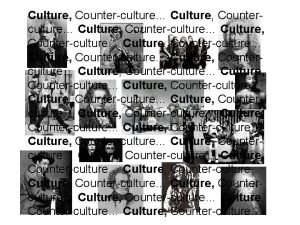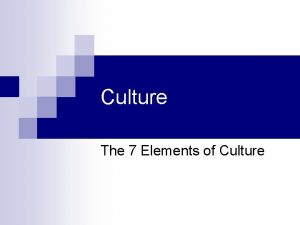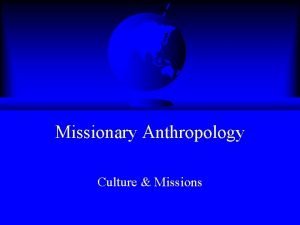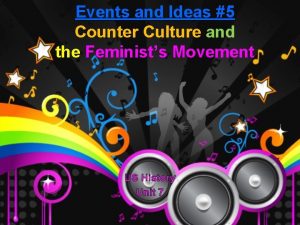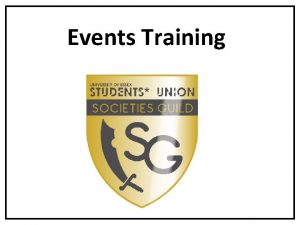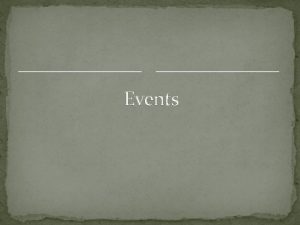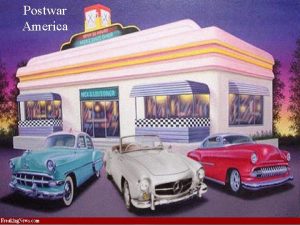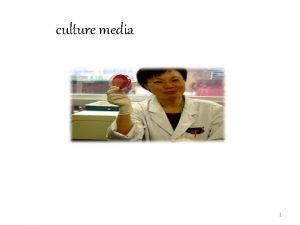Events and Ideas 5 America Culture in the
































- Slides: 32

Events and Ideas #5 America Culture in the 1920’s U. S. History Unit 3

Essential Questions: • What were the successes and failures of the 1920 s and how did that impact the future of the United States?

Crash Course Video • https: //www. youtube. com/watch? v=Vf. OR 1 XC Mf 7 A

The Roaring 20’s • https: //www. youtube. com/watch? v=Vf. OR 1 XC Mf 7 A

Population Growth in the U. S. • http: //www. outragegis. com/animations/popu lation-growth. htm

Urban vs. Rural Life • For the first time, urban dwellers outnumbered rural ones • Ethnic and social differences • Rural dwellers were primarily white and Protestant, holding traditional moral and religious values. • Urban dwellers comprised of many immigrants and were dominated by Catholics and Jews New York City in the 1920 s

The Automobile: • • • Positive Effects Created jobs; spawned related industries Tourism, family vacations Sense of freedom, not tied to train schedules and scheduled routes. Allowed rural people to connect with towns and cities Helped to create suburbs What new businesses/jobs were created with the development of automobiles? A typical Ford advertisement

The Automobile • https: //www. youtube. com/watch? v=lkqz 3 lp. UBp 0 • Imagine being in the 1920 s: – No stop signs – No traffic lights – No drivers test – No lanes in the roads – No parking places – Some vehicles still pulled by horses

The Automobile: Negative Effects • Increased accident rates • Traffic jams • Decline of public transportation systems in cities • Air pollution from auto exhaust • Cluttering of roadsides with billboards • Looking at your life today, what things would change if your family did not have any cars? An early 1920 s automobile accident

Youth Culture • The Automobile serves to emancipate the American Youth • Young people spend more time with friends and less time with family • New forms of entertainment are sought • What does being able to drive allow you as a teenager do that you could not do if you do not have your license? Mobility, romance, sex appeal

The Advent of Radio • https: //www. youtube. com/watc h? v=d. Muj. Qke 4 m. Mo • Pittsburgh’s KDKA began broadcasting in 1920 • First broadcast gave presidential election. • More than 500 stations operating nationwide by 1922

Radio Programming • Early broadcasts featured live music • By 1924, news events and election coverage • Later, comedies, dramas, and sports • Major corporations sponsored programming • Federal regulation How did the advent of radio change life in America?

Sports’ “Golden Age” • Baseball, football, and golf extremely popular • Radio made professional sports accessible • Pro athletes became heroes • Endorsement deals Babe Ruth shakes hands with President Harding on Opening Day, 1921

George Herman “Babe” Ruth • https: //www. youtube. com/watch ? v=b. XLz. WVdt. Lns • Iconic figure of the 1920’s due to his extravagant lifestyle • Idolized for his lifestyle and abilities • Sold to the Yankees by the Red Sox. • Named baseball’s greatest player ever. • How has the development of professional sports changed American life? “The Babe”, “The Bambino”, “The Sultan of Swat”

Popular Culture • Economic prosperity allowed more leisure time. • Radio and motion pictures made baseball and boxing popular. • Babe Ruth made baseball America’s sport. • Jack Dempsey was the world heavyweight champion from 1919 to 1926. • How is popular culture different today? Jack Dempsey

Prohibition: Origins • Origins in Jacksonian era – Anti-Saloon League – Temperance League, – Women’s Christian Temperance Union • Influence of WWI • State and local prohibition laws An 1874 cartoon about the Temperance League

The 18 th Amendment • https: //www. youtube. com/watch? v=_CE 4 u 6 j. I_rc A newspaper announces ratification of the amendment • Congress approved the 18 th Amendment (prohibition) in 1917 • Two-thirds of the states ratified the amendment by Jan. 1919 • Forty-six of 48 states eventually voted to ratify with only Rhode Island Connecticut voting against. • It became law on January 29, 1920, one year after its ratification.

The Volstead Act • Also known as the “National Prohibition Act” • Sponsored by Rep. Andrew Volstead • Defined an “intoxicating liquor” • Set penalties for violation of the act Representative Andrew Volstead

Speakeasies • https: //www. youtube. com/watch? v=Fqs. AMJEIQ 8 I • • Establishments that sold illegal liquor Highly profitable “Blind pigs” Law enforcement often bribed

Prohibition: Enforcement • Bureau of Prohibition • Originally a division of the Treasury Dept. , later moved to Justice Dept. • Enforcement proved nearly impossible • Underfunded • Use of alcohol for medicinal and religious purposes still legal Plainclothes and uniformed officers posing with an illegal still

Al Capone St. Valentine’s Day Massacre • https: //www. youtube. com/watch? v =Vzf. WQ 7 TRF 8 w • Chicago “furniture dealer” • Headed the Chicago Outfit • Powerful bootlegging empire • Believed to have masterminded St. Valentine’s Day Massacre • Eventually convicted of incometax evasion Capone’s mugshot

Prohibition: Successes and Failures Successes: 1. Consumption of alcohol decreased 2. Public drunkenness arrests declined 3. Deaths from alcoholism dropped 4. Fewer workers squandered paychecks on drinking Failures: 1. It forced moderate drinkers to become lawbreakers 2. Strict enforcement nearly impossible 3. Skyrocketing enforcement costs 4. Rise of organized crime 5. Some poisoned by homemade liquor

Fundamentalism A Fundamentalist service • Refers to elements “fundamental to belief” in a religion • While some lost themselves in consumerism and new morality others returned to traditional religion • Frequently dealt with literal interpretation of an inerrant Bible • Tent shows and religious revivals –Southern and Western U. S.

Fundamentalist Preachers Aimee Semple Mc. Pherson and Billy Sunday • Two most influential, charismatic preachers of the fundamentalist movement. • Both used flamboyant, theatrical sermons to entertain and educate their audiences. • Former Pro-baseball player, Billy Sunday advocated prohibition and supported Republican candidates • Aimee Semple Mc. Pherson used the radio to preach against evolution • What evidence do we have today of fundamentalist type religions?

Movies • Griffith’s Birth of a Nation: the first feature length film • Enormous popularity and big budgets • The Jazz Singer: the first sound film • Little regulation of content such as sex and crime. Foreground, from left: D. W. Griffith, Mary Pickford, Charlie Chaplin, and Douglas Fairbanks • Many concerned about the impact of movies on society

• Originated in New Orleans with African American musicians Jazz • Popular in Harlem • Roots in ragtime and blues • Became popular with Whites at speakeasies • Many saw the music as a corrupting influence on youth Louis “Satchmo” Armstrong, considered one of the finest jazz musicians of the era

Mass Advertising • Advertisers linked their message to modern era qualities: – Progress, convenience, leisure, success, fashion, and style. “I can enjoy the music better from across the room. ”

Easy Credit • Higher wages and shorter workdays result in a buying spree. • Prosperity gave confidence to Americans to go into debt. • 70% of radios and 60% of cars were bought through installments. • As incomes rose, buying on credit increased. * P. A. = Pipe Appeal

Welfare Capitalism • Workers bought stock, participated in profit sharing, and received medical care and pensions. • Company benefit programs hurt unions as workers saw unions as unnecessary. • With employers paying for benefits, workers spent more money on consumer goods. Corn syrup diet?

Farming Crisis • Farmers did not share in the prosperity of the 1920 s. – 1920: $1. 83 for a bushel of corn. – 1921: $1. 09 for a bushel of corn. • Farmers urged to overproduce during WWI had huge debts.

Promoting Prosperity • Worked to balance the budget, reduce government debt, and cut taxes. • Federal budget fell from $6. 4 billion to 3 billion in seven years. • Reduced federal debt from $26 billion to $7 billion. Andrew Mellon Secretary of Treasury • Reduced taxes so consumers could spend and investors could invest.

Essential Questions: • What were the successes and failures of the 1920 s and how did that impact the future of the United States?
 Mutually exclusive events vs not mutually exclusive events
Mutually exclusive events vs not mutually exclusive events Society and culture in provincial america
Society and culture in provincial america Chapter 3 society and culture in provincial america
Chapter 3 society and culture in provincial america Example of material culture
Example of material culture Continuous culture and batch culture
Continuous culture and batch culture American culture vs indian culture
American culture vs indian culture Uses of selenite f broth
Uses of selenite f broth Folk culture and popular culture venn diagram
Folk culture and popular culture venn diagram Popular culture examples
Popular culture examples Tsi
Tsi Folk culture and popular culture venn diagram
Folk culture and popular culture venn diagram Anaerobic gaspak
Anaerobic gaspak Explain stab culture and stroke culture
Explain stab culture and stroke culture Surface culture deep culture and esol
Surface culture deep culture and esol America america you mean the world to me
America america you mean the world to me Asia africa north and south america
Asia africa north and south america Whats an onomatopeia
Whats an onomatopeia Why is called latin america
Why is called latin america Eu amo a américa e a américa me ama
Eu amo a américa e a américa me ama Creating the culture of british north america
Creating the culture of british north america Ideas have consequences bad ideas have victims
Ideas have consequences bad ideas have victims Ideas secundarias
Ideas secundarias Sociologists define a symbol as
Sociologists define a symbol as Batch culture vs continuous culture
Batch culture vs continuous culture Individualistic culture definition
Individualistic culture definition Counterculture vs subculture
Counterculture vs subculture In an inert organizational culture,
In an inert organizational culture, Characteristics of quality culture
Characteristics of quality culture Hình ảnh bộ gõ cơ thể búng tay
Hình ảnh bộ gõ cơ thể búng tay Bổ thể
Bổ thể Tỉ lệ cơ thể trẻ em
Tỉ lệ cơ thể trẻ em Voi kéo gỗ như thế nào
Voi kéo gỗ như thế nào

